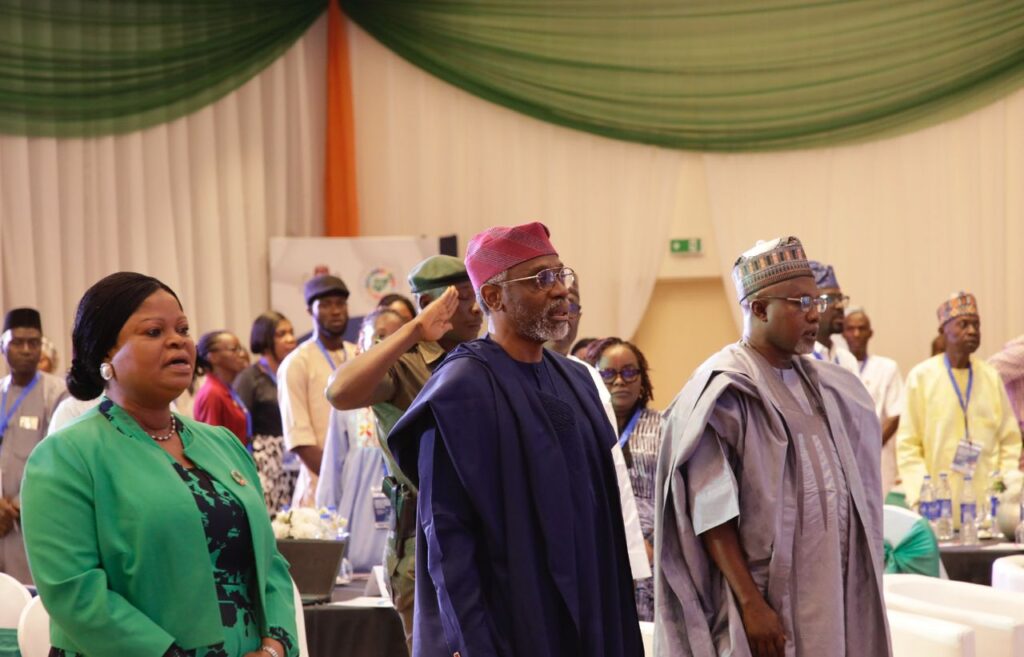Chief of Staff to the President, Femi Gbajabiamila, has emphasised the need for Nigeria to strengthen its internal strategies in order to meet the targets of the Sustainable Development Goals (SDGs), citing diminishing multilateral cooperation globally.
Gbajabiamila made this call during the official validation of Nigeria’s 2025 Voluntary National Review (VNR), the launch of the 2024 SDGs Progress Report, and the unveiling of the Inclusive Data Charter (IDC) Action Plan held in Abuja.
“In a shrinking multilateral space, we must look inwards for sustainable solutions to our economic, social, and environmental challenges,” he stated.
He highlighted the SDGs as a strategic guide for Nigeria’s development goals and reaffirmed the government’s commitment through consistent VNRs conducted in 2017, 2020, and now in 2025. He praised the Senior Special Assistant to the President on SDGs, Princess Adejoke Orelope-Adefulire, for her leadership in coordinating the current VNR process, which followed six regional consultations across Nigeria’s geopolitical zones.
Gbajabiamila urged ministries, agencies, development partners, civil society, and the private sector to collaborate more deeply and mobilise resources to ensure inclusivity in the SDGs implementation.
He restated President Bola Tinubu’s commitment to the 2030 Agenda as a core part of the Renewed Hope Agenda, noting that achieving the SDGs would mean “ending poverty and hunger, safeguarding our ecosystem, and ensuring our people live in peace and prosperity.”
In her address, Orelope-Adefulire described the validation workshop as evidence of Nigeria’s sustained commitment to the SDGs. She pointed out that, according to the 2024 UN SDGs Report, only 17 per cent of targets are globally on track, with the world’s poorest most affected.
“This national validation workshop not only reaffirms our commitment to the 2030 Agenda but also demonstrates our resolve to ground implementation in inclusive, evidence-based, and participatory principles,” she said.
She noted that Nigeria’s VNR consultations included specific engagements with persons with disabilities, youth, and children. The newly launched IDC Action Plan, developed with the National Bureau of Statistics and Sightsavers Nigeria, aims to improve disaggregated data collection as a foundation for accountable development.
United Nations Resident Coordinator in Nigeria, Mr Mohamed Fall, in his goodwill message, commended Nigeria’s participatory approach and reiterated UN support. “With less than five years remaining, the SDGs are globally off track. But Nigeria’s participatory approach gives us hope that the course can still be corrected,” he said.
The Nigeria Governors’ Forum (NGF), represented by Mr Eghosa Omoigui on behalf of NGF Director General Mr Abdulateef Shittu, highlighted subnational progress in states like Kwara, Lagos, Gombe, and Edo as signs of innovation driving change. He affirmed the NGF’s commitment to supporting states in localising the SDGs through partnerships and knowledge sharing.
Correspondents report that Nigeria is among the 39 countries set to present its VNR at the 2025 High-Level Political Forum (HLPF) at the United Nations in July.
(NAN)


